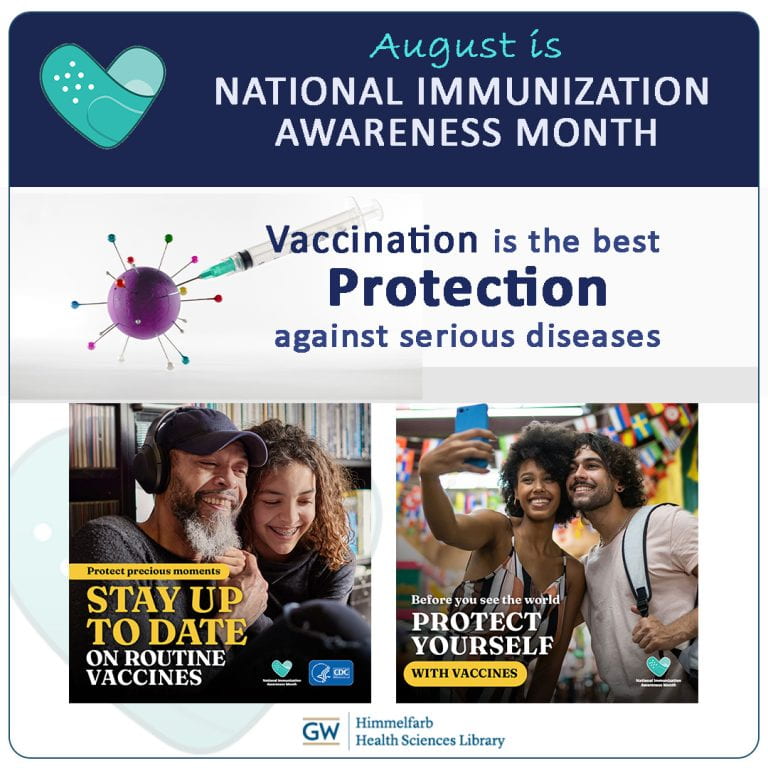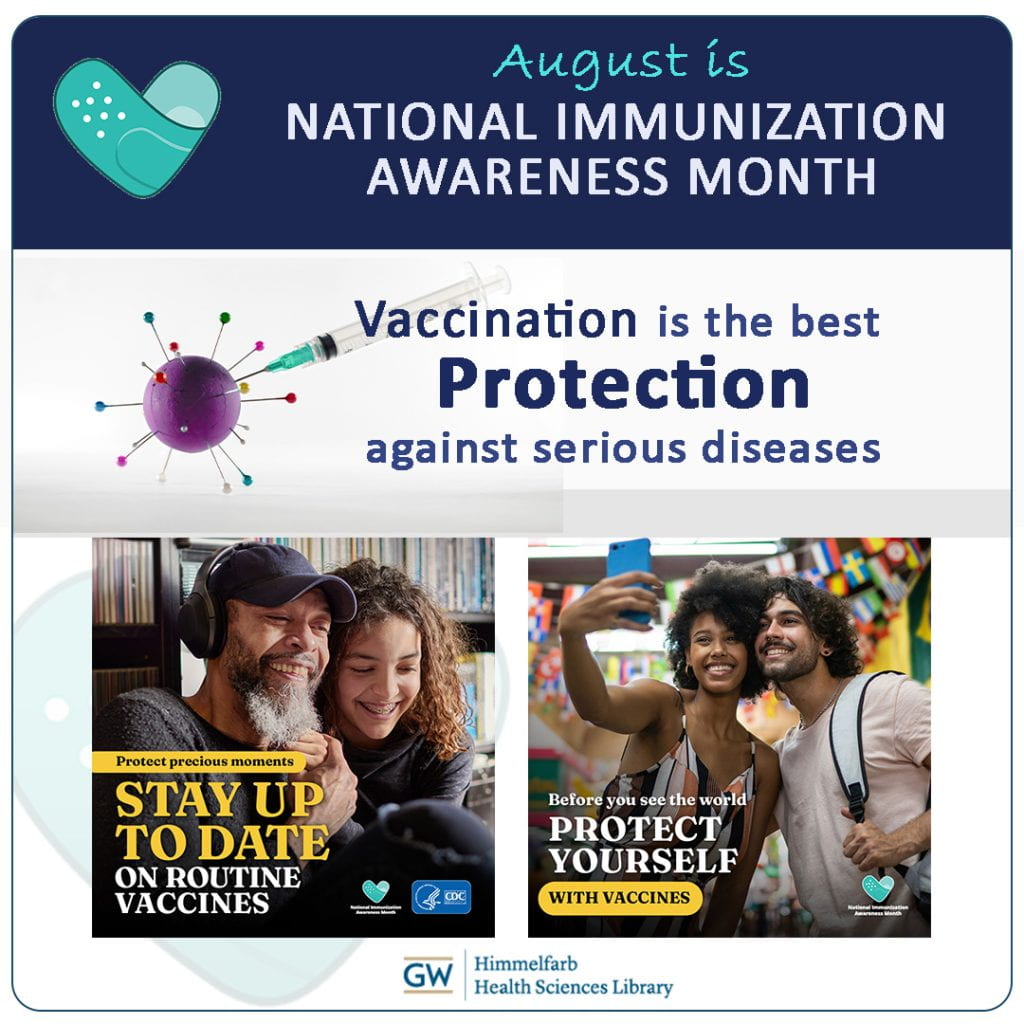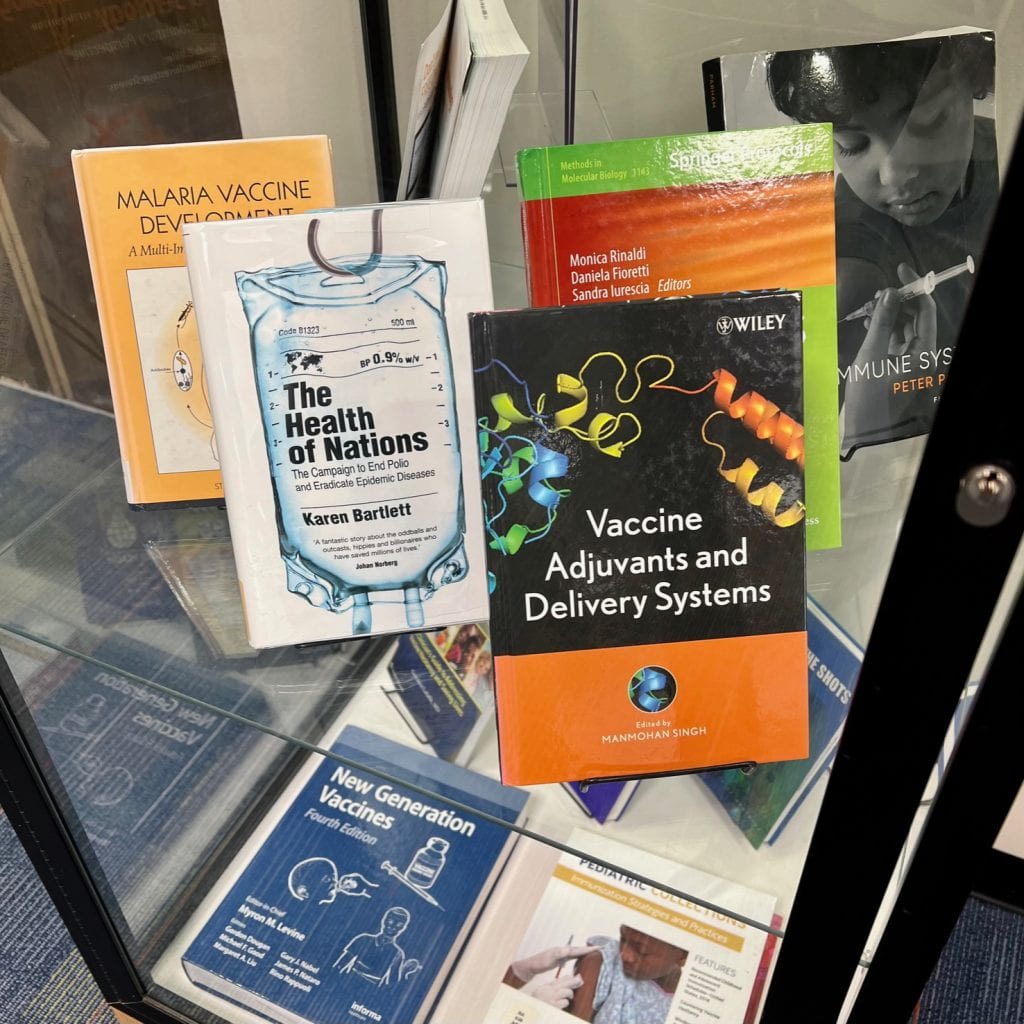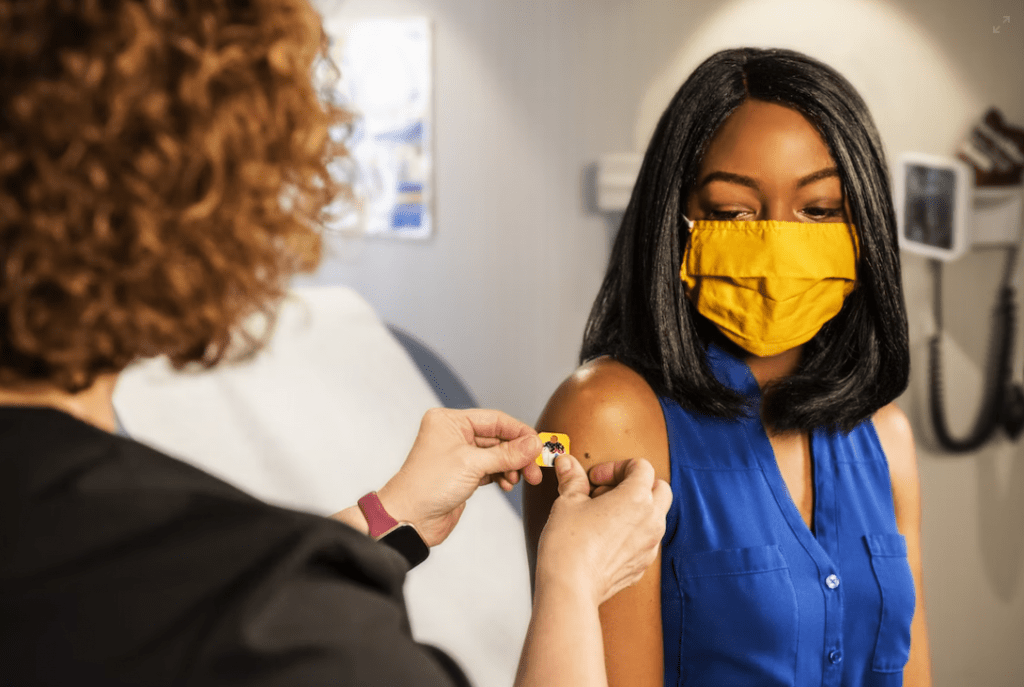
August is National Immunization Awareness Month (NIAM)! Staying updated on immunizations is an important way to protect yourself against preventable diseases. Vaccines help provide immunity before potential exposure to diseases by creating antibodies in your body to fight off infections and training your immune system to recognize and destroy harmful pathogens before they can cause serious illness.
The Centers for Disease Control and Prevention’s (CDC) Vaccines and Immunizations website provides information on immunization schedules for children and adults, information on pregnancy and vaccination, and a list of recommended vaccines for travelers. Himmelfarb Library offers a variety of immunization resources. Our key journal on the topic is Vaccine, which publishes quality science related to vaccinology.
We also have several books (both in print and online) on the topic of vaccines:
- Vaccines: A Clinical Overview and Practical Guide: by Joseph Domachowske, and Manika Suryadevara. This e-book covers the fundamentals of vaccines, including what constitutes a vaccine, how they are manufactured and tested, how vaccine recommendations are developed, and practical concerns such as vaccine confidence and hesitancy, misconceptions, and patient communication.
- Vaccine Law & Policy: by Tony Y. Yang and Dorit Reiss. This book, available in both print and as an e-book, includes comprehensive coverage of key aspects of vaccine law and policy, from product development and intellectual property protections to regulation, public mandates, and vaccine injury claims.
- Vaccine Wars: The Two-Hundred-Year Fight for School Vaccinations: by Kimberley Tolley. This e-book provides a comprehensive history of the efforts to vaccinate children from contagious diseases in US schools and examines what triggered anti-vaccination activism in the past, and why it continues today.
- Pediatric Vaccines: A Clinical Decision Support Chart: What You’re Protecting Against and Why It’s Important Today: by the American Academy of Pediatrics. This e-book includes helpful visual aid guides that clinicians can use in conversations with patients and parents about the importance of vaccines, the diseases they help prevent, and vaccine recommendations.
- Stuck: How Vaccine Rumors Start - And Why They Don’t Go Away: by Heidi Larson. This e-book examines how the issues around vaccine hesitancy center around people feeling left out of the conversation, and examines the social vectors that spread vaccine rumors, how they spread around the globe, and how these individual threads are all connected.
Want to learn more about staying up-to-date on your vaccines and keeping track of which may need updating? Our Immunization Awareness Month post from August 2024 has resources to help you do that! Want to learn more about how vaccines work? Check out this great video from Nature - which you can also share with your patients:









